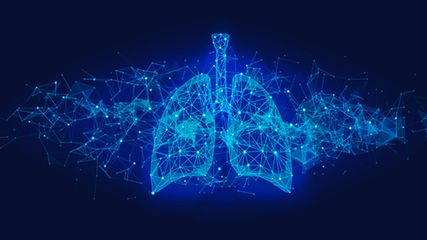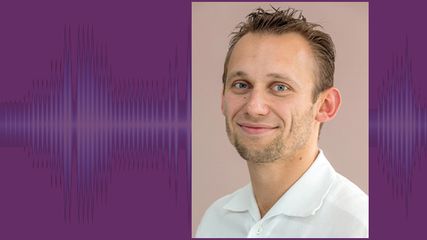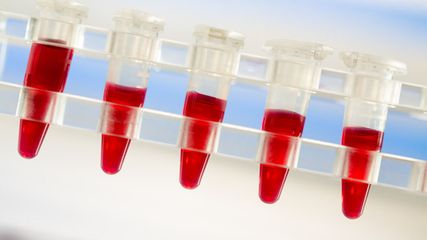
«Our goal is to find a way through the jungle of available scientific evidence»
The interview was conducted by Mehrpouya Mobin
Interviewees:
Prof. Solange Peters, MD PhD
Médecin cheffe
Département d'oncologie
Centre Hospitalier Universitaire Vaudois (CHUV)
Dr. Alfredo Addeo
Adjoint oncologue
Hôpitaux Universitaires Genève
On 7th October, the 4th International Lung Cancer Summit (ILCS) will take place in Lausanne. We talked with chairs Prof. Solange Peters and Dr. Alfredo Addeo about the special features of the ILCS, its interactive character and expectations for this year's meeting.
What is the International Lung Cancer Summit (ILCS) and why is it so important?
S. Peters: The ILCS is a forum for everyone in the field of lung cancer from all over the world to connect, discuss and exchange the latest and personal challenges in the management and current treatment. The landscape for the treatment of lung cancer has evolved dramatically in the past years thanks to enormous efforts from scientists and researchers worldwide. The medical gap in thoracic oncology, however, remains incredibly large and the potential for novel treatment methods is enormous. Our goal is to find a way through the jungle of available scientific evidence and data to reach a consensus on the optimal treatment approach and to share these results with all stakeholders, ultimately benefiting all of us: the organizers, the participants, but most importantly our patients.
The ILCS is also a pioneering platform because, even before the Corona pandemic, it set a milestone as an educational hybrid event with the possibility to participate both online as well as on-site, thereby enabling a virtual, independent outreach to many people from all over the world without traveling to Geneva or Lausanne. As a result, we now have participants joining us from over 50 countries and we hope to reach even more people this year, who can make use of this format which is indeed more sustainable and environment-friendly.
How does the ILCS distinguish from other lung cancer conferences?
A. Addeo: I can think of several things. First and foremost, this conference brings together both young and established experts from around the globe to put the most relevant studies of the past year into the clinical context in an attempt to align on a common approach. This increases the variety of different experiences that the speakers as well as the audience bring with them and makes a valuable exchange, as everyone has a different background.
What makes this conference so unique is its atmosphere, which is very different from other meetings. It was born from the collaboration between Lausanne University Hospital and The University Hospitals Geneva to bring together key opinion leaders from various countries who bring their own challenges and perspectives. As a faculty, we support the attitude to ask any questions and speak up, express own experiences from the daily clinics, while discussing thought-provoking aspects within an open forum. We take advantage of this to discuss the difficulties among healthcare professionals that we face and struggle with every day. Another point that makes the ILCS a special event is the reproduction of knowledge and data. We do not only try to communicate or present the latest data, but we want to analyze and interpret them, and then translate them so that we can translate them into our own practice.
On the other hand, we have world-renowned specialists in the field of lung cancer on site in Geneva or Lausanne, which puts the lectures and discussions on a level of highest quality. And still, it feels like being in a small group among friends, where you can ask all your questions at any time and without fear, and you meet each other with the highest level of respect and helpfulness. So come and ask all your questions, share your concerns and discuss the latest therapy approach with all of us, but most importantly – join us!
What are the reasons for healthcare professionals to participate in this year’s lung cancer summit?
S. Peters: There are many reasons why healthcare professionals should attend the ILCS. First of all, you have to realize how difficult it is for healthcare professionals to keep up with the bulk of trial data and filter out the most suitable therapy options, especially when we consider available biomarkers, toxicities, co-morbidities and access to drugs. Unfortunately, this is not uncommon, and it is for this reason that we need to openly discuss these challenges to find a consensus from the complexity of the data and share it with everyone.
In addition, this event is meant to be very interactive for all attendees. This means that anyone online or on-site can speak up, add comments, ask questions, and also share patient cases. We appreciate it when viewers behind the screen can also submit live video messages which we can then show during the conference and discuss in the panel. And should you not be able to join us live on 7th of October – whether virtually or in person at the event – you can watch all the lectures and discussions afterwards or even watch them a second or third time, as all discussions and presentations will be available on the online platform the next day.
Who should attend the International Lung Cancer Summit?
S. Peters: The target audience for the ILCS is broad and comprises any stakeholder who wants to follow the scientific landscape in thoracic oncology with its hundreds of new studies and trial data being published every year. Apart from oncologists, we wish to invite radio-oncologists, surgeons, pneumologists and pathologists to join us and ask all their questions. We are of course also happy to welcome general practitioners and nurses, who take key roles and responsibilities for our patients. These are in direct contact with patients, which makes it even more important that the knowledge shared at the ILCS is conveyed to them and made accessible for their everyday practice. And importantly, we also welcome patient representatives as well as all those who are generally interested in and concerned with the field of lung cancer in order to take this knowledge to the patients on the next day.
What are you most proud of when it comes to the ILCS?
A. Addeo: I must admit that I am proud that we are holding the ILCS this year for the 4th time in a row, Corona pandemic notwithstanding. For the last four years, it has always been about the joint collaboration between two major academic centers in Switzerland: On the one hand, this is my hospital, the University Hospital of Geneva. On the other hand, there is the Lausanne University Hospital, where Professor Solange Peters works. This collaboration between Professor Peters and myself, respectively the two University Hospitals of Lausanne and Geneva at the International Lung Cancer Summit, shows even more clearly how important collaboration, cooperation among us physicians is in order to find the best therapeutic options for our patients.
Another point that makes me proud is that we are meeting with so many important professionals from all over the world from different continents, who are very eager to participate with their expertise and knowledge. And the last aspect is that we can share all this important information in a single day with everybody else and make it accessible for free until we meet again next year.
© ASCO/Todd Buchanan 2015
© Gilles Weber
Das könnte Sie auch interessieren:
Erhaltungstherapie mit Atezolizumab nach adjuvanter Chemotherapie
Die zusätzliche adjuvante Gabe von Atezolizumab nach kompletter Resektion und adjuvanter Chemotherapie führte in der IMpower010-Studie zu einem signifikant verlängerten krankheitsfreien ...
Highlights zu Lymphomen
Assoc.Prof. Dr. Thomas Melchardt, PhD zu diesjährigen Highlights des ASCO und EHA im Bereich der Lymphome, darunter die Ergebnisse der Studien SHINE und ECHELON-1
Aktualisierte Ergebnisse für Blinatumomab bei neu diagnostizierten Patienten
Die Ergebnisse der D-ALBA-Studie bestätigen die Chemotherapie-freie Induktions- und Konsolidierungsstrategie bei erwachsenen Patienten mit Ph+ ALL. Mit einer 3-jährigen ...


